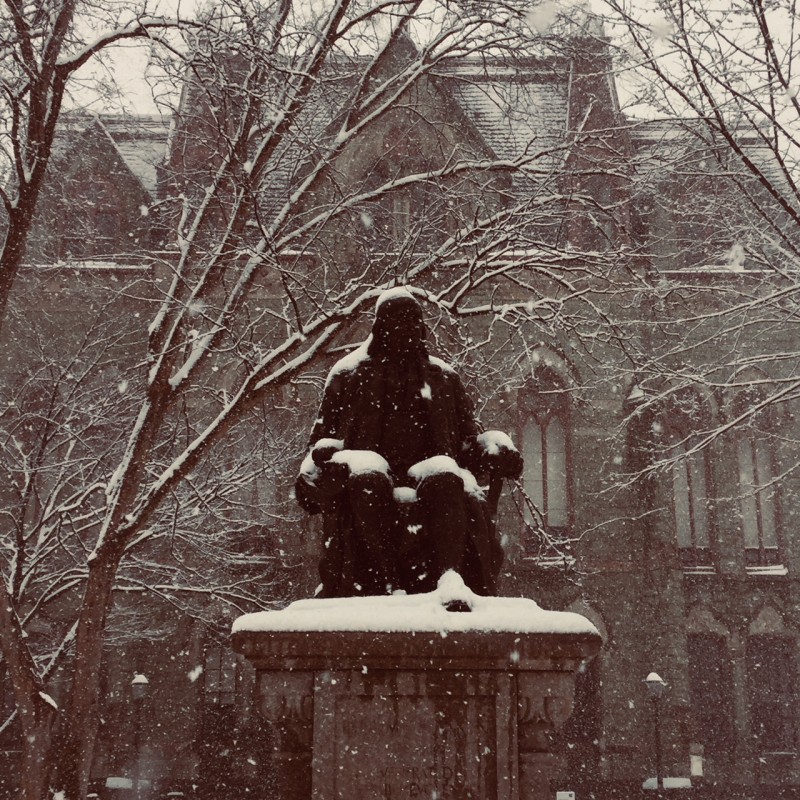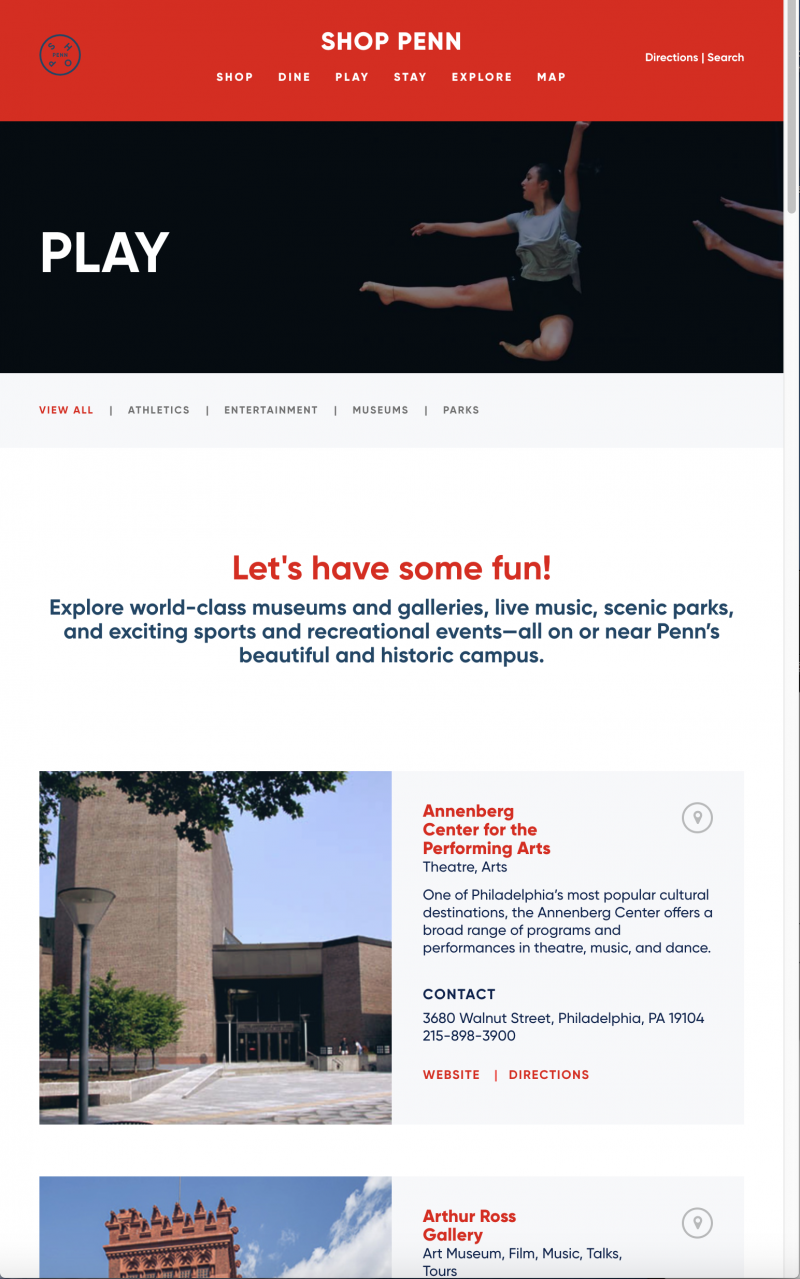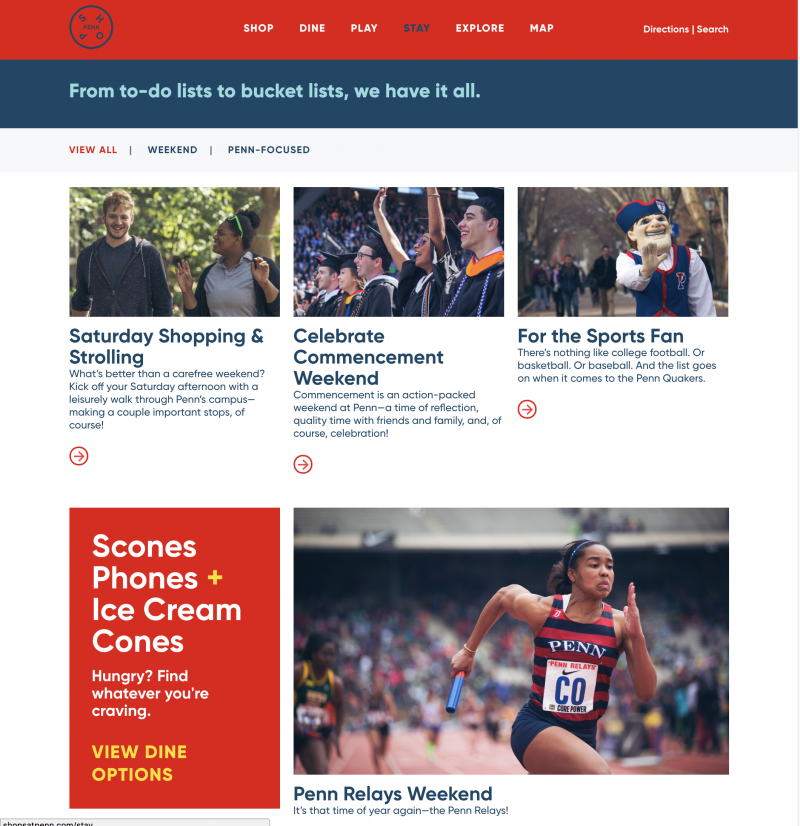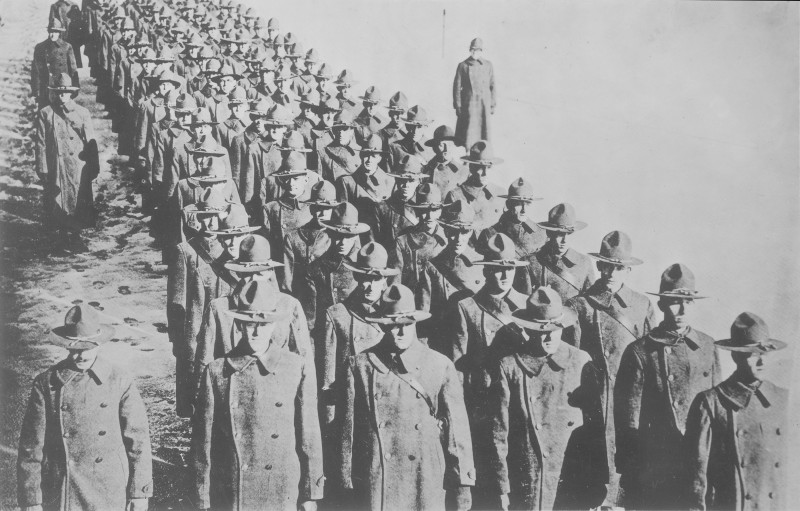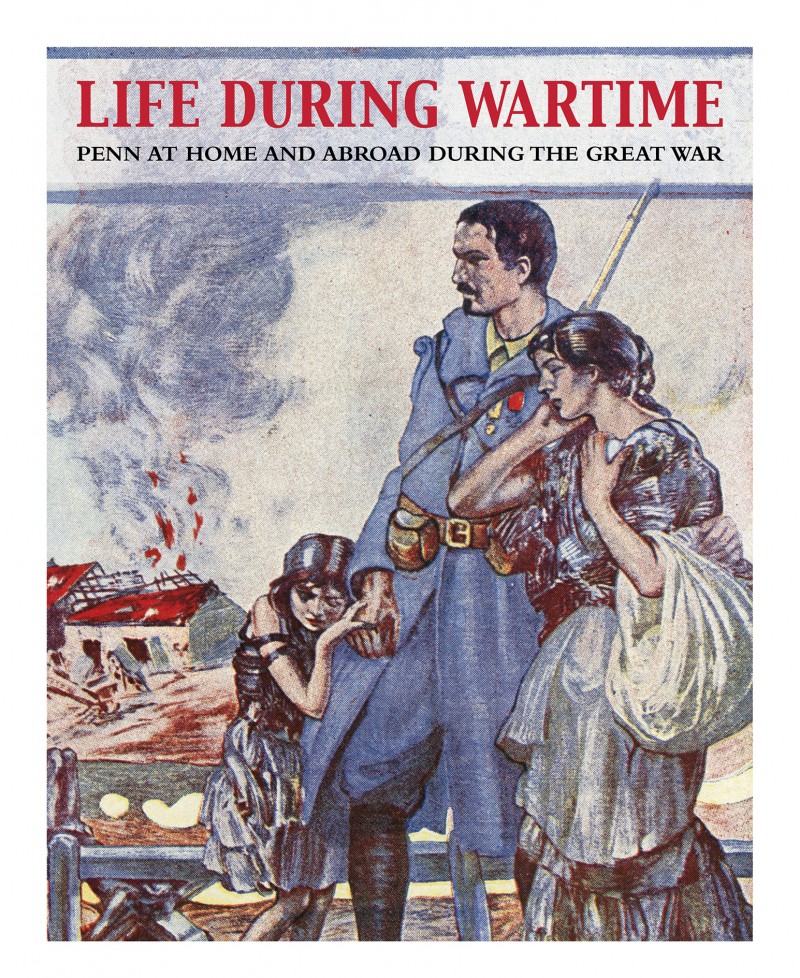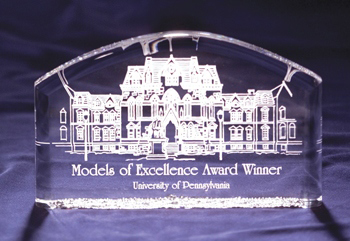Weekly Paid Professional Staff Assembly (WPPSA) Bylaws
(Revised February 2018)
ARTICLE I—Purpose and Composition
A. Purpose of the Weekly Paid Professional Staff Assembly
1. The Weekly-Paid Professional Staff Assembly, herein referred to as WPPSA, is the University of Pennsylvania’s representative body for all weekly-paid, full-time, non-union employees. It consists of WPPSA Leadership and General Members. WPPSA holds monthly General Membership meetings that are open to any weekly-paid, full-time, non-union employees at Penn.
B. Composition of the Weekly Paid Professional Staff Assembly
1. WPPSA Leadership represent all full-time, non-union, weekly-paid employees on the University’s main decision-making bodies, primarily University Council and its various committees. WPPSA Leadership consists of: the Executive Board; all other weekly-paid staff who have a seat on a University Council committee (University Council Committee Representatives); Volunteer Staff; and members who have previously served as Chairs (Former Chairs). These individuals are elected in accordance with the principles and procedures as stated in Article II of this Constitution and the purpose, principles and procedures by which it is governed are outlined in Article III.
a. The Executive Board consists of the Chair, Chair-Elect, Past Chair, Secretary, and (2) Treasurers.
b. University Council Committee Representatives fill designated WPPSA seats on University Council committees, which include: Committee on Academic and Related Affairs, Campus and Community Life, Diversity & Equity, Facilities, Personnel Benefits, Committee on Committees and other ad hoc committees.
c. Volunteer Staff consists of an Outreach Manager, Listserv Manager, and Website Manager.
d. Former Chairs include all previous Chairs of WPPSA who finished at least a 1-year term and are still weekly paid, full-time, non-union employees at Penn.
2. Members of the WPPSA consist of any weekly-paid employee who has signed up for the WPPSA listserv. All weekly-paid, full-time, non-union employees at Penn are eligible for general membership in WPPSA.
ARTICLE II—Principles and Procedures Governing Election of the Executive Board and WPPSA Leadership
A. Elections
1. Election for membership on the Executive Board will be held by May of each year for all upcoming vacant positions.
2. A call for nominations shall be constructed by the current Executive Board members and published for advertisement to all weekly-paid employees.
a. The call for nominations shall be published in Almanac, The Daily Pennsylvanian and, with notice, sent to all individual weekly-paid employees by all available University vehicles of communication.
b. This notice shall include the following items: an established deadline, the intended publication date of the list of nominees, contact information to which to send nominations and the rules of eligibility as outlined in Section 3.The intended deadline date should be within two weeks of the nomination deadline.
c. Nominations are to be sent to the Secretary of the Executive Board and/or other designated Executive Board members by the established deadline.
d. All nominations received and accepted by the nominee shall be published in Almanac on the intended issue date. This notice shall include the names, University affiliations and a brief biographical sketch of each of the nominees and shall also include the date, location and procedures of the election.
B. Eligibility
1. Eligibility for nomination and election to the Executive Board (positions are decided by elections that are open to all weekly-paid, full-time, non-union employees at Penn):
a. Chair: All weekly-paid, full-time, non-union University employees are eligible to run for Chair of the Executive Board provided that they have attended at least 4 monthly meetings of the WPPSA in the previous 12 months.
b. Chair-Elect: All weekly-paid, full-time, non-union University employees are eligible to run for Chair-Elect of the Executive Board given that they have attended at least three monthly meetings of the WPPSA in the previous 12 months.
c. Secretary: All weekly-paid, full-time, non-union University employees are eligible to run for Secretary of the Executive Board given that they have attended at least two monthly meetings of the WPPSA in the previous 12 months.
d. Treasurer: All weekly-paid, full-time, non-union University employees are eligible to run for one of the seats of Treasurer of the Executive Board given that they have attended at least two monthly meetings of the WPPSA in the past 12 months.
e. Past-Chair: A Chair takes on this position after completing a one- or two- year term.
2. In the event that there are no weekly-paid employees interested in these positions that meet the meeting limit, the Executive Board can consider other instances of participation to count as a substitute (i.e. volunteering at the annual Employee Resource Fair).
3. All weekly-paid, full-time, non-union University employees are eligible to vote for elected membership on the Executive Board.
4. Elections will take place on the date and at the time and location stated in the published announcements. Voting will be conducted by secret ballot and coordinated by the current officers. In the case where the “call for nominations” does not yield enough nominees to fill all the vacant Executive Board membership positions, the nominees that have been nominated will automatically be declared elected to the Executive Board as unopposed candidates, providing they meet all the other eligibility requirements.
5. The results of the election with names and University affiliation of the newly elected Executive Board members shall be published in Almanac and other University vehicles of communication within two weeks of the election day or in the next available issue.
C. Eligibility for non-Executive Board Leadership positions
1. University Council Committee Representatives
a. All weekly-paid, full-time, non-union University employees are eligible to hold a seat on a University Council standing or ad-hoc committee given that they have attended at least one WPPSA monthly meeting in the previous 12 months.
b. To confirm the nominee/candidate for the seat, a majority vote of approval is needed from those in attendance at the following General Membership meeting.
c. In the event that there are no weekly-paid employees interested in these committee seats that meet the meeting limit, the Executive Board can consider other instances of participation to count as a substitute.
2. Volunteer Staff
a. All weekly-paid, full-time, non-union University employees are eligible to apply for the volunteer positions.
b. To confirm the nominee/applicant for the seat, a majority vote of approval is needed from those in attendance at the following General Membership meeting.
3. Former Chairs
a. All previous Chairs of the WPPSA who have completed a one-year term or more are automatically in WPPSA Leadership if they remain a weekly paid, non-union employee at Penn.
b. Former Chairs can opt-out or be voted out of WPPSA Leadership at any time.
ARTICLE III—Purpose, Principles and Procedures Governing the Executive Board
A. Nature and purpose of the Executive Board
1. The Executive Board shall be the elected official voice of the WPPSA. The Executive Board is the decision-making body representing the Assembly in University matters and will act in a manner that serves in accordance with the principles and procedures in this Constitution. The Executive Board will execute the mission of the Assembly with integrity while honoring the spirit of the Assembly. At least half of the elected Executive Board must be present at a General Membership meeting or the occasional meeting of just WPPSA Leadership (or just the Executive Board) before business can be conducted.
2. The Executive Board collaborates with the rest of WPPSA Leadership (University Council Committee Representatives, Former Chairs, and Volunteer Staff) to make decisions that tend to the current and future needs of weekly-paid employees at the University.
3. The Executive Board shall consist of six officers. These six positions are the Chair, the Chair- Elect, Past-Chair, the Secretary and (2) Treasurers. In the event of any vacancies of these officers, a replacement shall be elected to the Executive Board according to the succession plan outlined in Article IV, section 2.
4. The outgoing Chair will notify all new Executive Board members of their election and will convene a meeting of the entire Executive Board for the purpose of electing new officers within two (2) weeks of the Executive Board’s election.
5. The sole authority and responsibility to revise and amend this Constitution is entrusted to the Executive Board. All proposed changes shall be made at a meeting called for this purpose at least three weeks prior, of which all weekly-paid employees are invited to attend. All such changes shall require a majority vote of everyone in attendance at the meeting.
6. Executive Board members serve for at least one year, and are generally expected to serve two consecutive years (can be in varying positions) with a maximum of five consecutive years of service.
B. The Office of Chair
1. The Chair is the WPPSA’s primary executive officer and principal representative who will speak on behalf of the Assembly. The Chair should be knowledgeable of the Penn community and able to speak on all aspects of Assembly issues.
2. The term of office for the Chair shall be one year with an option to serve, if nominated, for two years.
3. The Chair shall prepare the agenda and preside over the monthly General Membership meetings and any meetings of WPPSA Leadership. The Chair’s signature shall appear on all Assembly correspondence. The Chair holds a seat and is required to attend all meetings of University Council and the University Council Steering Committee.
C. The Office of Chair-Elect
1. The Chair-Elect is the second executive officer of the WPPSA. The Chair-Elect shall be the primary advisor to the Chair in University matters.
2. The Chair-Elect serves as the primary administrative help for the Chair.
3. In the temporary absence of the Chair, the Chair-Elect shall assume all duties and responsibilities otherwise handled by the Chair.
4. The Chair-Elect will assume the role of Chair at the end of the one or two-year term allotted for the Chair.
5. The Chair-Elect has the option to assume the role of Interim Chair in the case that the Chair resigns before the end of his or her term.
D. Past Chair
1. The Past-Chair serves in an advisory role to the Executive Board the (1) year after he or she has successfully completed their one or two year term as Chair.
2. The Past Chair will remain an integral part of the organization and will at times be asked for their input in the decision-making process.
3. The Past Chair will serve alongside the current Chair as a mentor to WPPSA Leadership
4. The Past-Chair cannot sit in place of the current Chair or Chair-Elect at the University Council or Steering Committee meetings.
5. Should the Chair decide to resign, and the Chair-Elect, Secretary, Treasurers, and University Council Committee Representatives decline to fill the position, the Past-Chair has the option of accepting the role as Interim Chair. Should the Past-Chair assume the role of Interim Chair, he or she can then attend University Council and Steering Committee meetings.
E. The Office of the Secretary
1. The Secretary is the third executive officer of WPPSA. The Secretary is responsible for all routine correspondence of the Executive Board.
2. The Secretary shall be responsible for the recording and reporting of the WPPSA Leadership and General Membership meeting minutes. Such minutes should be available to any weekly-paid employee upon request.
3. The Secretary shall be responsible for notifying members of the date, time and location of all meetings and functions pertaining to WPPSA Leadership and General Membership in collaboration with the Chair.
4. The Secretary should be responsible for the publicity and dissemination of all correspondence.
F. Office of the Treasurer(s)
1. The Treasurer is the fourth executive officer of the WPPSA. The Treasurer shall be held accountable and responsible for handling the finances and maintaining all financial records of the Board. Such records should be made available for audit upon request from the Board.
2. The Office of the Treasurer will be held by two elected individuals who are in equal in authority.
ARTICLE IV—Resignations and Vacancies
1. Executive Board members shall tender their resignations, giving at least one month notice to the Executive Board, of such an intent, in writing.
2. In the event of resignation, the Executive Board will fill the position through the following succession plan with an “Interim” designation until either the end of the term or a time deemed appropriate by the Executive Board:
a. Chair Resignation—1st choice: Chair-Elect; 2nd choice: Secretary; 3rd choice: A Treasurer; 4th choice: University Council Committee Representative.
b. Chair-Elect Resignation —1st choice: Secretary; 2nd choice: A Treasurer; 3rd choice: University Council Committee Representative; 4th choice: General Member.
c. Secretary Resignation—1st choice: A Treasurer; 2nd choice: University Council Committee Representative; 3rd choice: General Member; 4th choice: Full-time, non-union weekly-paid employee at-large.
d. A Treasurer Resignation—1st choice: University Council Committee Representative; 2nd choice: General Member; 3rd choice: Full-time, non-union weekly-paid employee at- large.
e. Past-Chair Resignation—Past-Chairs are unable to officially resign from the position since they are technically the past chair for the entire year after their term as Chair. However, they can notify the Executive Board of a need for a reduced or halted advisory role if necessary.
3. Dual Seats: In the case of a vacancy of an Executive Board seat that cannot be filled, any sitting member of the Executive Board can hold dual seats until the end of the term or until the vacancy is filled.
ARTICLE V—Financial Contracts/Agreements
1. Any and all financial endeavors and /or contracts entered into on behalf of the WPPSA shall require the approval of the Executive Board. Once approved, two persons of Executive Board, one being the Chair, must sign any contracts.
ARTICLE VI—University Council Committees
1. All University Council Committee seats are appointed in the beginning of the year and immediately as needed due to resignations, job promotions, or the creation of an ad-hoc committee by University Council.
2. To serve on a committee, a weekly-paid, full-time, non-union employee must have attended at least one WPPSA meeting in the previous 12 months and must be approved in a majority vote at a WPPSA General Membership meeting.
3. All WPPSA University Council Committee Representatives will be asked to give a brief report on the progress of the committee they are serving at the monthly WPPSA General Membership meeting. This will allow WPPSA as a whole to exhibit the best representation and collective voice on each University Council Committee.
4. In the event that a seat opens up on a University Council committee, the position will be made available at the following General Membership meeting for anyone who meets the eligibility requirements. Should no one at that meeting have interest, a call to fill the seat will be made public to the listserv, and interested candidates will be eligible for a vote at the following General Membership meeting.
5. The minimum term to serve on a particular committee is one year, while the maximum to serve on a particular committee is three years. Eligible members can hold more than one seat on a committee but are not recommended to hold more than three.
6. Committee members must give ample notice (before the start of the next term) that they intend to step down from a committee so that WPPSA Leadership can prepare to fill the seat.
ARTICLE VII—WPPSA Ad Hoc Committees
1. In the event of resignations, removal of committee seats, Bylaw amendment, and other special circumstances, the Executive Board, led by the Chair, will appoint an ad hoc committee that consist of no less than 4 active members of WPPSA Leadership and one Executive Board member.
2. All findings and recommendations from the ad hoc committee will be brought to the attention of WPPSA Leadership and General Members for a vote at a General Membership meeting.
ARTICLE VIII—WPPSA Leadership Volunteer Staff
1. WPPSA Leadership Volunteer Staff help the Executive Board with administrative tasks to help publicize the Assembly and its initiatives.
a. The Outreach Manager is primarily responsible for promoting WPPSA and its events to the University Community through physical and digital platforms.
b. The Listserv Manager maintains the WPPSA listserv, making sure to add and remove contacts when appropriate. Also sends out general communication to the listserv as directed by the Chair.
c. The Website Manager updates the WPPSA website with relevant and accurate information and multimedia.
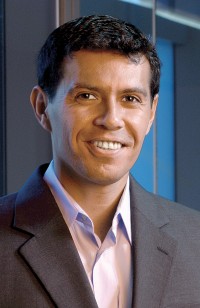
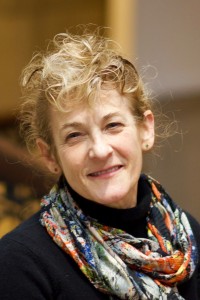
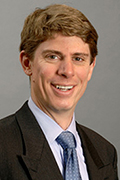

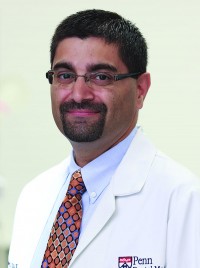
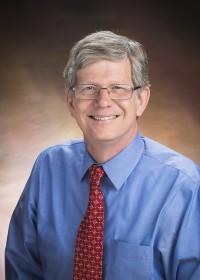
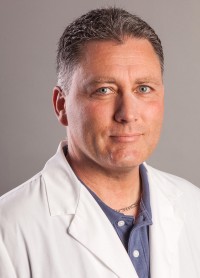
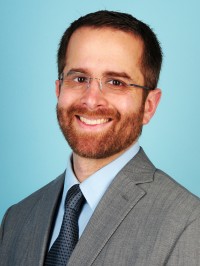
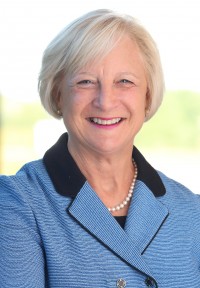

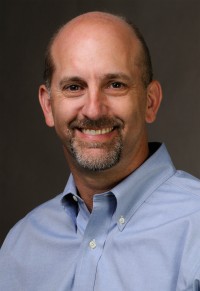


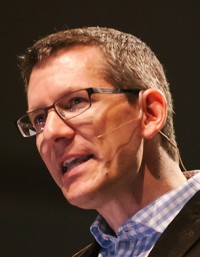 The Baccalaureate speaker for Penn’s May 13 ceremony will be Andy Crouch, partner for theology and culture at Praxis, an organization that works as a creative engine for redemptive entrepreneurship. His two most recent books—The Tech-Wise Family: Everyday Steps for Putting Technology in Its Proper Place and Strong and Weak: Embracing a Life of Love, Risk and True Flourishing—build on the compelling vision of faith, culture and the image of God laid out in his previous books Playing God: Redeeming the Gift of Power and Culture Making: Recovering Our Creative Calling.
The Baccalaureate speaker for Penn’s May 13 ceremony will be Andy Crouch, partner for theology and culture at Praxis, an organization that works as a creative engine for redemptive entrepreneurship. His two most recent books—The Tech-Wise Family: Everyday Steps for Putting Technology in Its Proper Place and Strong and Weak: Embracing a Life of Love, Risk and True Flourishing—build on the compelling vision of faith, culture and the image of God laid out in his previous books Playing God: Redeeming the Gift of Power and Culture Making: Recovering Our Creative Calling. The Deans of the School of Nursing (Penn Nursing), the Graduate School of Education (GSE) and the School of Social Policy & Practice (SP2) are appointing two faculty leaders to the Penn Futures Project (PFP) in order to build upon and accelerate the successes of the program since its inception.
The Deans of the School of Nursing (Penn Nursing), the Graduate School of Education (GSE) and the School of Social Policy & Practice (SP2) are appointing two faculty leaders to the Penn Futures Project (PFP) in order to build upon and accelerate the successes of the program since its inception.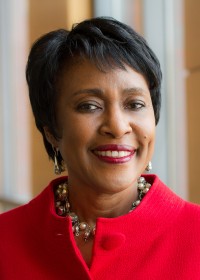 “Drs. Lipman and Gasdsen are the right leaders at the right time to continue the growth of PFP. Their expertise and desire to promote social justice across professions will benefit vulnerable children throughout the city,” said Penn Nursing Dean Antonia Villarruel.
“Drs. Lipman and Gasdsen are the right leaders at the right time to continue the growth of PFP. Their expertise and desire to promote social justice across professions will benefit vulnerable children throughout the city,” said Penn Nursing Dean Antonia Villarruel. Bo Zhen has joined Penn Arts and Sciences as assistant professor of physics & astronomy and Elliman Faculty Fellow. A scholar of nanophotonics, non-Hermitian physics and topological photonics, Dr. Zhen earned his BS at Tsinghua University and his PhD at the Massachusetts Institute of Technology, where he received a Presidential Fellowship and was a finalist for the American Physical Society’s Carl E. Anderson Division of Laser Science Dissertation Award. Before coming to Penn, he held a joint postdoctoral fellowship in the Physics Department at MIT and Technion, studying how to control light with nanoscopic structures and invent and design new optoelectronic devices for various applications. Dr. Zhen recently received a 2018 Air Force’s Young Investigator Program Award.
Bo Zhen has joined Penn Arts and Sciences as assistant professor of physics & astronomy and Elliman Faculty Fellow. A scholar of nanophotonics, non-Hermitian physics and topological photonics, Dr. Zhen earned his BS at Tsinghua University and his PhD at the Massachusetts Institute of Technology, where he received a Presidential Fellowship and was a finalist for the American Physical Society’s Carl E. Anderson Division of Laser Science Dissertation Award. Before coming to Penn, he held a joint postdoctoral fellowship in the Physics Department at MIT and Technion, studying how to control light with nanoscopic structures and invent and design new optoelectronic devices for various applications. Dr. Zhen recently received a 2018 Air Force’s Young Investigator Program Award..jpg) David Richmond Williams, professor emeritus of psychology at Penn, died at his home in West Philadelphia on March 16. He was 83 years old.
David Richmond Williams, professor emeritus of psychology at Penn, died at his home in West Philadelphia on March 16. He was 83 years old.
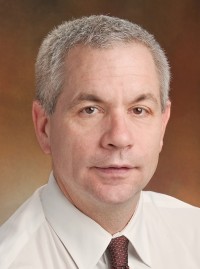 Dr. Maris’ lab seeks to discover the fundamental mechanisms that subvert normal neural development and orchestrate NB tumorigenesis, and then to translate this knowledge into patient-specific therapies that will be more effective and less toxic.
Dr. Maris’ lab seeks to discover the fundamental mechanisms that subvert normal neural development and orchestrate NB tumorigenesis, and then to translate this knowledge into patient-specific therapies that will be more effective and less toxic. 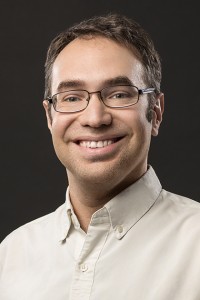 Ryan Baker, associate professor in Penn’s Graduate School of Education and the director of the Penn Center for Learning Analytics, is a subcontractor for the $430,000 grant from the U.S. Department of Education, Institute of Education Sciences, to Florida State University. The purpose of this project, Exploring Adaptive Cognitive and Affective Learning Support for Next Generation STEM Learning Games is to research how to design educational games that better support frustrated students in regulating their emotions in order to learn effectively.
Ryan Baker, associate professor in Penn’s Graduate School of Education and the director of the Penn Center for Learning Analytics, is a subcontractor for the $430,000 grant from the U.S. Department of Education, Institute of Education Sciences, to Florida State University. The purpose of this project, Exploring Adaptive Cognitive and Affective Learning Support for Next Generation STEM Learning Games is to research how to design educational games that better support frustrated students in regulating their emotions in order to learn effectively. 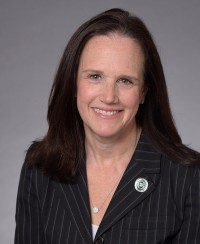 Jill M. Baren, professor of emergency medicine at the Hospital of the University of Pennsylvania and former department chair (
Jill M. Baren, professor of emergency medicine at the Hospital of the University of Pennsylvania and former department chair (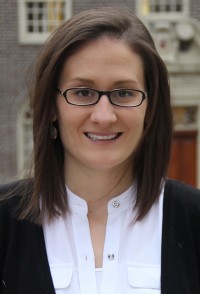
_03-22-16.jpg)
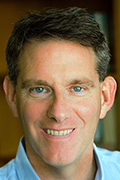 Iron Prof—the high-energy, interdepartmental Iron Chef for Wharton professors—returned this year with five contenders. The annual competition is hosted by the Wharton Graduate Association to showcase the broad range of faculty research. Participating professors get six minutes to present their slides and are allowed a brief Q&A before students and faculty vote for their favorite speaker of the night. This year, the most votes went to Peter Fader, the Frances and Pei-Yuan Chia Professor, professor of marketing, for his presentation on customer-based corporate valuation.
Iron Prof—the high-energy, interdepartmental Iron Chef for Wharton professors—returned this year with five contenders. The annual competition is hosted by the Wharton Graduate Association to showcase the broad range of faculty research. Participating professors get six minutes to present their slides and are allowed a brief Q&A before students and faculty vote for their favorite speaker of the night. This year, the most votes went to Peter Fader, the Frances and Pei-Yuan Chia Professor, professor of marketing, for his presentation on customer-based corporate valuation. 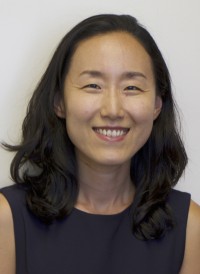 Shinjae Chung, an assistant professor of neuroscience, and Iain Mathieson, an assistant professor of genetics, both in the Perelman School of Medicine at Penn, have been awarded Sloan Research Fellowships. Recipients receive $65,000, which may be spent over a two-year period on expenses that support their research.
Shinjae Chung, an assistant professor of neuroscience, and Iain Mathieson, an assistant professor of genetics, both in the Perelman School of Medicine at Penn, have been awarded Sloan Research Fellowships. Recipients receive $65,000, which may be spent over a two-year period on expenses that support their research.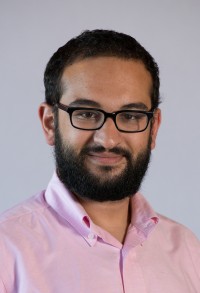 Dr. Mathieson, whose fellowship is in computational and evolutionary molecular biology, is a population geneticist. His research aims to learn about human genetic structure and its relationship to history, evolution and disease. Using computational tools and genomic data from both ancient and present-day people, he investigates demographic history, the effects of natural selection and the interpretation of association studies. His most recent work used ancient DNA to investigate the genomic history of Europe and the effect of natural selection on the human genome during the transition from a hunter-gatherer to an agricultural lifestyle.
Dr. Mathieson, whose fellowship is in computational and evolutionary molecular biology, is a population geneticist. His research aims to learn about human genetic structure and its relationship to history, evolution and disease. Using computational tools and genomic data from both ancient and present-day people, he investigates demographic history, the effects of natural selection and the interpretation of association studies. His most recent work used ancient DNA to investigate the genomic history of Europe and the effect of natural selection on the human genome during the transition from a hunter-gatherer to an agricultural lifestyle.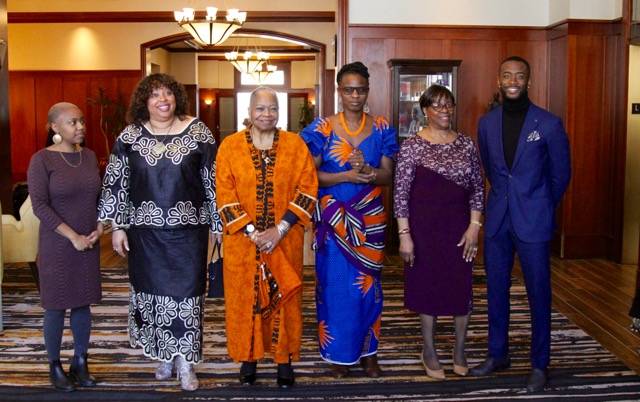 On March 16, the Women of Color at Penn 31st Annual Awards Luncheon drew more than 300 people to the Inn at Penn to honor women whose work has promoted education, cultural diversity and positive change on campus and in the world.
On March 16, the Women of Color at Penn 31st Annual Awards Luncheon drew more than 300 people to the Inn at Penn to honor women whose work has promoted education, cultural diversity and positive change on campus and in the world.

